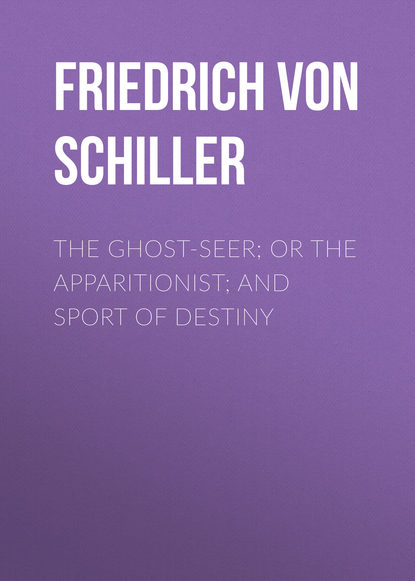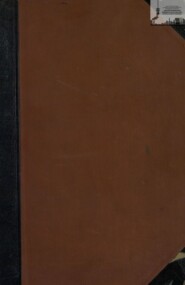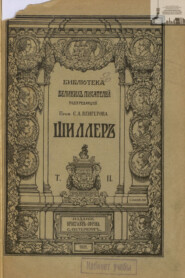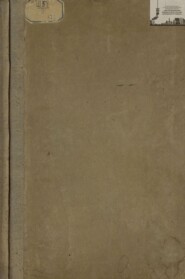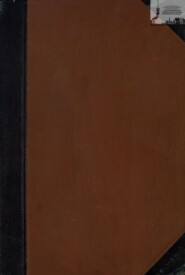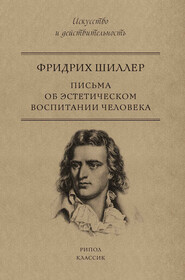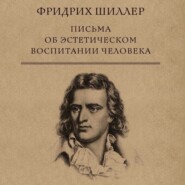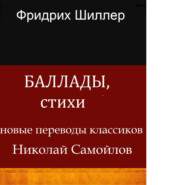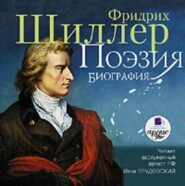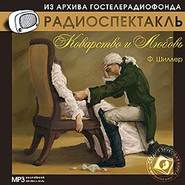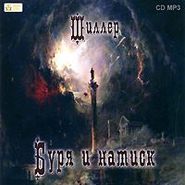По всем вопросам обращайтесь на: info@litportal.ru
(©) 2003-2024.
✖
The Ghost-Seer; or the Apparitionist; and Sport of Destiny
Настройки чтения
Размер шрифта
Высота строк
Поля
“A counterfeit!” repeated the prince. “But in order to counterfeit you required the true one. How did you come by it? Surely the deceased never went without it.”
“That is true,” replied the Sicilian, with symptoms of confusion. “But from a description which was given me of the genuine ring”
“A description which was given you! By whom?”
“Long before that time. It was a plain gold ring, and had, I believe, the name of the young countess engraved on it. But you made me lose the connection.”
“What happened further?” said the prince, with a very dissatisfied countenance.
“The family felt convinced that Jeronymo was no more. From that day forward they publicly announced his death, and went into mourning. The circumstance of the ring left no doubt, even in the mind of Antonia, and added a considerable weight to the addresses of the chevalier.
“In the meantime the violent shock which the young countess had received from the sight of the apparition brought on her a disorder so dangerous that the hopes of Lorenzo were very near being destroyed forever. On her recovery she insisted upon taking the veil; and it was only at the most serious remonstrances of her confessor, in whom she placed implicit confidence, that she was induced to abandon her project. At length the united solicitations of the family, and of the confessor, forced from her a reluctant consent. The last day of mourning was fixed on for the day of marriage, and the old marquis determined to add to the solemnity of the occasion by making over all his estates to his lawful heir.
“The day arrived, and Lorenzo received his trembling bride at the altar. In the evening a splendid banquet was prepared for the cheerful guests in a hall superbly illuminated, and the most lively and delightful music contributed to increase the general gladness. The happy old marquis wished all the world to participate in his joy. All the entrances of the palace were thrown open, and every one who sympathized in his happiness was joyfully welcomed. In the midst of the throng – ”
The Sicilian paused. A trembling expectation suspended our breath.
“In-the midst of the throng,” continued the prisoner, “appeared a Franciscan monk, to whom my attention was directed by the person who sat next to me at table. He was standing motionless like a marble pillar. His shape was tall and thin; his face pale and ghastly; his eyes were fixed with a grave and mournful expression on the new-married couple. The joy which beamed on the face of every one present appeared not on his. His countenance never once varied. He seemed like a statue among the living. Such an object, appearing amidst the general joy, struck me more forcibly from its contrast with everything around. It left on my mind so indelible an impression that from it alone I have been enabled (which would otherwise have been impossible) to recollect the features of the Franciscan monk in the Russian officer; for, without doubt, you must have already conceived that the person I have described was no other than your Armenian.
“I frequently attempted to withdraw my eyes from this terrible figure, but they wandered back involuntarily, and found his countenance unaltered. I pointed him out to the person who sat nearest to me on the other side, and he did the same to the person next to him. In a few minutes a general curiosity and astonishment pervaded the whole company. The conversation languished; a general silence succeeded; the monk did not heed it. He continued motionless as before; his grave and mournful looks constantly fixed upon the new-married couple; his appearance struck every one with terror. The young countess alone, who found the transcript of her own sorrow in the fact of the stranger, beheld with a melancholy satisfaction the only object that seemed to understand and sympathize in her sufferings. The crowd insensibly diminished. It was past midnight; the music became fainter and more languid; the tapers grew dim, and many of them went out. The conversation, declining by degrees, lost itself at last in secret murmurs, and the faintly illuminated hall was nearly deserted. The monk, in the meantime, continued motionless, with the same grave and mournful look still fixed on the new-married couple. The company at length rose from the table; the guests dispersed; the family assembled in a separate group, and the monk, though uninvited, continued near them. How it happened that no person spoke to him I cannot conceive.
“The female friends now surrounded the trembling bride, who cast a supplicating and distressed look on the venerable stranger; he did not answer it. The gentlemen assembled in the same manner around the bridegroom. A solemn and anxious silence prevailed among them. ‘That we should be so happy here together,’ began at length the old marquis, who alone seemed not to behold the stranger, or at least seemed to behold him without dismay. ‘That we should be so happy here together, and my son Jeronymo cannot be with us!’
“‘Have you invited him, and has he failed to come?’ asked the monk. It was the first time he had spoken. We looked at him in alarm.
“‘Alas! he is gone to a place from whence there is no return,’ answered the old man. ‘Reverend father I you misunderstood me. My son Jeronymo is dead.’
“‘Perhaps he only fears to appear in this company,’ replied the monk. ‘Who knows how your son Jeronymo may be situated? Let him now hear the voice which he heard the last. Desire your son Lorenzo to call him.’
“‘What means he?’ whispered the company to one another. Lorenzo changed color. I will not deny that my own hair began to stand on end.
“In the meantime the monk approached a sideboard; he took a glass of wine and carried to his lips. ‘To the memory of our dear Jeronymo!’ said he. ‘Let every one who loved the deceased follow my example.’
“‘Be you who you may, reverend father!’ exclaimed the old marquis, ‘you have pronounced a name dear to us all, and you are heartily welcome here;’ then turning to us, he offered us full glasses. ‘Come, my friends!’ continued he, ‘let us not be surpassed by a stranger. The memory of my son Jeronymo!
“Never, I believe, was any toast less heartily received.
“‘There is one glass still unemptied,” said the marquis. ‘Why does my son Lorenzo refuse to drink this friendly toast?’
“Lorenzo, trembling, received the glass from the hands of the monk; tremblingly he put it to his lips. ‘To my dearly-beloved brother Jeronymo!’ he stammered out, and replaced the glass with a shudder.
“‘That was my murderer’s voice!’ exclaimed a terrible figure, which appeared suddenly in the midst of us, covered with blood, and disfigured with horrible wounds.
“Do not ask me the rest,” added the Sicilian, with every symptom of horror in his countenance. “I lost my senses the moment I looked at this apparition. The same happened to every one present. When we recovered the monk and the ghost had disappeared; Lorenzo was writhing in the agonies of death. He was carried to bed in the most dreadful convulsions. No person attended him but his confessor and the sorrowful old marquis, in whose presence he expired. The marquis died a few weeks after him. Lorenzo’s secret is locked in the bosom of the priest who received his last confession; no person ever learnt what it was.
“Soon after this event a well was cleaned in the farmyard of the marquis’ villa. It had been disused for many years, and was almost closed up by shrubs and old trees. On digging among the rubbish a human skeleton was found. The house where this happened is now no more; the family del M – nte is extinct, and Antonia’s tomb may be seen in a convent not far from Salerno.
“You see,” continued the Sicilian, seeing us all stand silent and thoughtful, “you see how my acquaintance with this Russian officer, Armenian, or Franciscan friar originated. Judge now whether I had not good cause to tremble at the sight of a being who has twice placed himself in my way in a manner so terrible.”
“I beg you will answer me one question more,” said the prince, rising from his seat. “Have you been always sincere in your account of everything relating to the chevalier?”
“To the best of my knowledge I have,” replied the Sicilian.
“You really believed him to be an honest man?”
“I did; by heaven! I did,” answered he again.
“Even at the tine he gave you the ring?”
“How! He gave me no ring. I did not say that he gave me the ring.”
“Very well!” said the prince, pulling the bell, and preparing to depart. “And you believe” (going back to the prisoner) “that the ghost of the Marquis de Lanoy, which the Russian officer introduced after your apparition, was a true and real ghost?”
“I cannot think otherwise.”
“Let us go!” said the prince, addressing himself to us. The gaoler came in. “We have done,” said the prince to him. “You, sir,” turning to the prisoner, “you shall hear further from me.”
“I am tempted to ask your highness the last question you proposed to the sorcerer,” said I to the prince, when we were alone. “Do you believe the second ghost to have been a real and true one?”
“I believe it! No, not now, most assuredly.”
“Not now? Then you did once believe it?”
“I confess I was tempted for a moment to believe it something more than the contrivance of a juggler.”
“And I could wish to see the man who under similar circumstances would not have had the same impression. But what reasons have you for retracting your opinion? What the prisoner has related of the Armenian ought to increase rather than diminish your belief in his super natural powers.”
“What this wretch has related of him,” said the prince, interrupting me very gravely. “I hope,” continued he, “you have now no doubt but that we have had to do with a villain.”
“No; but must his evidence on that account – ”
“The evidence of a villain, even supposing I had no other reason for doubt, can have no weight against common sense and established truth. Does a man who has already deceived me several times, and whose trade it is to deceive, does he deserve to be heard in a cause in which the unsupported testimony of even the most sincere adherent to truth could not be received? Ought we to believe a man who perhaps never once spoke truth for its own sake? Does such a man deserve credit, when he appears as evidence against human reason and the eternal laws of nature? Would it not be as absurd as to admit the accusation of a person notoriously infamous against unblemished and irreproachable innocence?”
“But what motives could he have for giving so great a character to a man whom he has so many reasons to hate?”
“I am not to conclude that he can have no motives for doing this because I am unable to comprehend them. Do I know who has bribed him to deceive me? I confess I cannot penetrate the whole contexture of his plan; but he has certainly done a material injury to the cause he advocates by proving himself to be at least an impostor, and perhaps something worse.”
“The circumstance of the ring, I allow, appears somewhat suspicions.”
“It is more than suspicious,” answered the prince; “it is decisive. He received this ring from the murderer, and at the moment he received it he must have been certain that it was from the murderer. Who but the assassin, could have taken from the finger of the deceased a ring which he undoubtedly never took off himself? Throughout the whole of his narration the Sicilian has labored to persuade us that while he was endeavoring to deceive Lorenzo, Lorenzo was in reality deceiving him. Would he have had recourse to this subterfuge if he had not been sensible how much he should lose in our estimation by confessing himself an accomplice with the assassin? The whole story is visibly nothing but a series of impostures, invented merely to connect the few truths he has thought proper to give us. Ought I then to hesitate in disbelieving the eleventh assertion of a person who has already deceived me ten times, rather than admit a violation of the fundamental laws of nature, which I have ever found in the most perfect harmony?”
“I have nothing to reply to all this, but the apparition we saw yesterday is to me not the less incomprehensible.”
“It is also incomprehensible to me, although I have been tempted to believe that I have found a key to it.”
“How so?” asked I.
“Do not you recollect that the second apparition, as soon as he entered, walked directly up to the altar, took the crucifix in his hand, and placed himself upon the carpet?”





